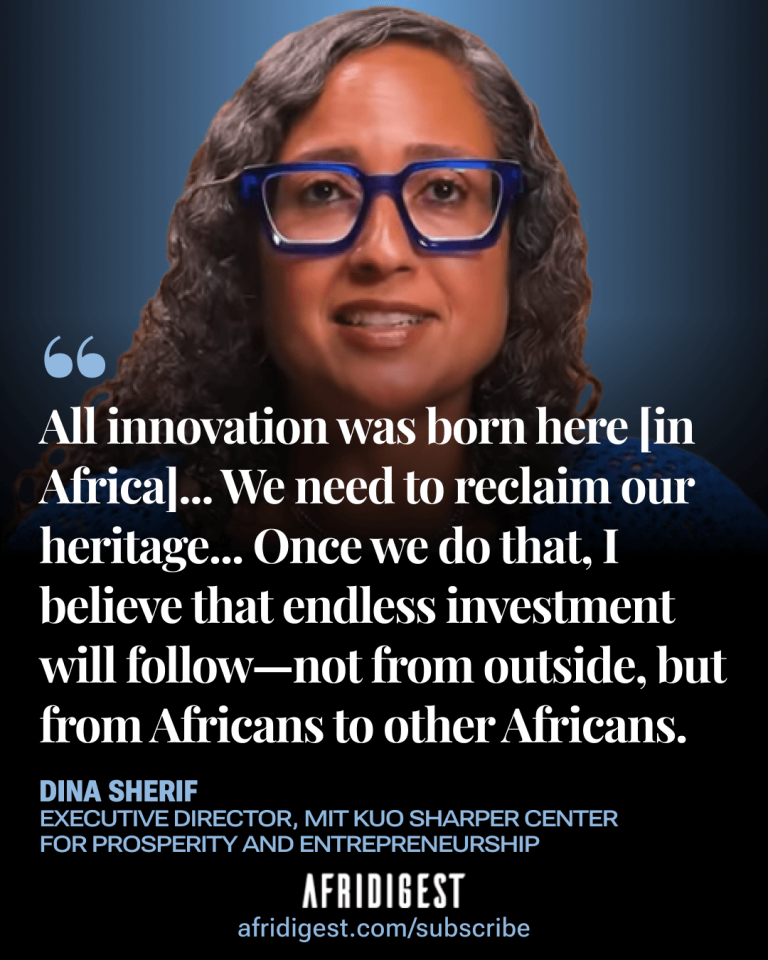“I have to say I believe that all innovation was born here.”
That’s Dina Sherif, Executive Director of the MIT Kuo Sharper Center for Prosperity and Entrepreneurship, challenging the narrative that innovation needs to be “brought to” Africa.

Her argument? Before the West claimed ownership of innovation as a concept, Africa and the broader region were already centers of groundbreaking advancement:
- Mathematics and engineering that built the pyramids
- Irrigation and various innovations in the field of agriculture
- Medical knowledge that influenced global practices
- Complex trade networks spanning continents
“But yet we are being told, ‘Let us teach you about innovation,'” she highlights. “I say: Let us reclaim our heritage.”
Sherif rejects terms like “developing markets,” “emerging markets,” and “Global South,” preferring “growth markets” instead — a reflection of the reality that the majority of the world’s GDP growth is happening in these regions.
She also prefers ‘prosperity’ to ‘development.’
“‘Development’ has been used for decades to make us feel less than,” she says. “‘Prosperity’ is something that everybody is always trying to attain.”
“Words matter,” she emphasizes. “They shape our minds and culture. They put us in places of possibility or places of scarcity.”
But her argument isn’t just semantics. It’s economics.
When Africans see the continent as a birthplace of innovation rather than a recipient of external expertise, capital allocation patterns change. Local investment increases.
“We need to remember our heritage. We need to own it. We need to reclaim our own narrative. And once we do that, I believe that endless investment will follow — not from outside of the continent, but from Africans to other Africans.”
Her thesis: prosperity through entrepreneurship requires owning the narrative first.
“What happens with Africans who have money? They take their money elsewhere… We need to believe in ourselves and remember and have pride in who we are and where we come from.”
At MIT, Sherif is translating this into action — working with entrepreneurs, investors, policymakers, and researchers across Africa, the Middle East, Latin America, and Southeast Asia to build innovation ecosystems rooted in local agency.
As she explains, her work is about “shifting perceptions from dependency to economic agency” and “moving beyond outdated narratives to a future where African entrepreneurs are recognized as architects of global innovation.”
Her vision: African entrepreneurs and investors controlling both the narrative and the capital, creating intergenerational prosperity that’s self-sustaining rather than aid-dependent.
What’s your take?
- Can changing how we talk about African markets genuinely shift investment patterns and economic outcomes?
- Does focusing on internal investment (“Africans to other Africans”) risk missing opportunities from global capital flows, or is it the key to sustainable economic sovereignty?
- What would it take for African entrepreneurs to genuinely see themselves as “architects of global innovation”?
Watch Sherif’s WISE On Air and In The Valley podcast appearances here and here.





Share: